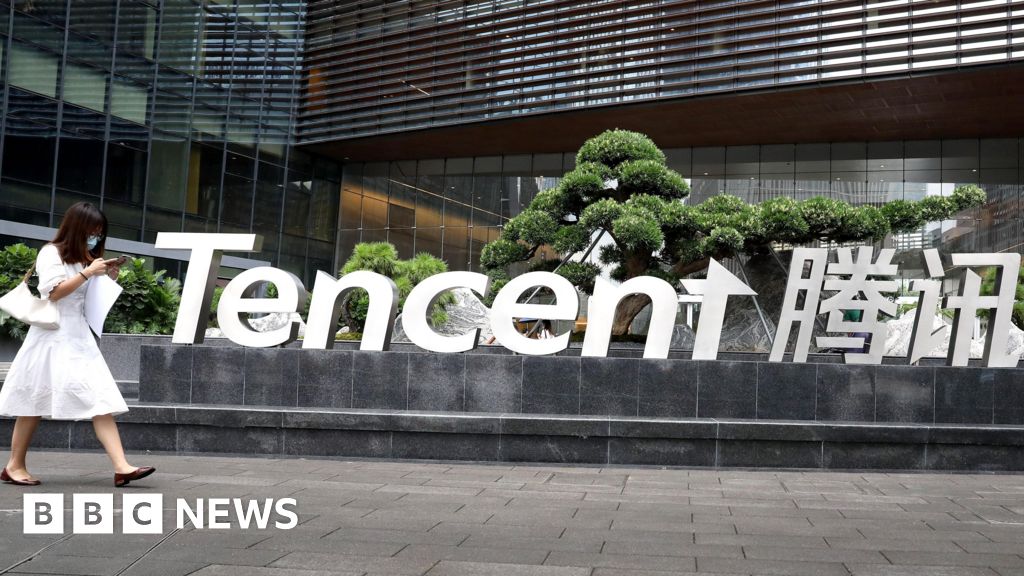World
U.S. Steel faces murky future after Biden blocks proposed takeover by Nippon Steel

The Biden administration’s move on Friday to block Nippon Steel’s proposed purchase of U.S. Steel raises questions about the once iconic American company’s future, with industry sources saying the manufacturer could struggle to energize growth or attract rival acquisition bids.
President Biden stopped the $15 billion deal over national security and supply-chain concerns.
U.S. Steel CEO David B. Burritt blasted the decision, calling Mr. Biden’s action “shameful” and “corrupt” in a statement to CBS News.
“He gave a political payback to a union boss out of touch with his members while harming our company’s future, our workers and our national security. He insulted Japan, a vital economic and national security ally, and put American competitiveness at risk,” Burritt said.
Burritt added that the proposed deal “is what guarantees a great future for U. S. Steel, our employees, our communities and our country.”
Limited options
Industry experts said that without outside investment from Japan, the U.S-based steel manufacturer’s path forward is murky.
“With foreign ownership seemingly off the table, we see limited avenues moving forward,” Bill Peterson, metals and mining analyst for JPMorgan said in a research note.
U.S. Steel leaders had warned that without an infusion of capital from Nippon Steel, it would be forced to curtail its legacy blast furnace investments and shift to cheaper nonunion electric arc furnaces. Additionally, executives said U.S. Steel could move its headquarters out of Pittsburgh.
The company could still entertain bids from domestic rivals, said Peterson, noting that U.S. Steel’s mini-mill assets could be attractive to peers like steel products company Nucor Group, which considered buying parts of U.S. Steel before dropping out over price concerns.
Others see rival bids as unlikely.
“No one was ready to follow Nippon Steel and Cliffs above [$50 per share] a year ago,” BNP Paribas analysts said in a report, referring to Nippon Steel’s $55 a share offer, which offered a hefty premium to U.S. Steel shareholders. “Cliffs no longer has enough firepower while foreign interested parties are now likely to stay well put given the backlash Nippon Steel had to face.”
Should U.S. Steel choose continue to operate as an independent company, it could focus on growing its Big River steel plant in Arkansas, which it acquired in 2021 and which produces 70% to 80% fewer emissions than typical steel-making processes, according to JPMorgan analysts. In that scenario, the company could simultaneously trim its legacy blast furnace assets over time, they said.
Challenges from both sides
U.S. Steel and Nippon Steel are expected to challenge the Biden administration’s ruling, but face an uphill battle.
“The president’s statement and order do not present any credible evidence of a national security issue, making clear that this was a political decision,” the companies said in a joint statement Friday. “Following President Biden’s decision, we are left with no choice but to take all appropriate action to protect our legal rights.”
The companies added that the transaction would “revitalize communities” that rely on the steel industry, provide steelworkers with job security and improve the American steel supply chain.
Nippon Steel has proposed investing $3 billion in U.S. Steel under the deal.
“Blocking this transaction means denying billions of committed investment to extend the life of U. S. Steel’s aging facilities and putting thousands of good-paying, family-sustaining union jobs at risk,” the companies said in their statement.
By contrast. the United Steelworkers, the union representing 850,000 workers, cheered the administration’s move.
“It’s clear from U.S. Steel’s recent financial performance that it can easily remain a strong and resilient company. We now call on U.S. Steel’s board of directors to take the necessary steps to allow it to further flourish and remain profitable,” the union said in a statement.
In December, U.S. Steel said it expected fourth-quarter adjusted earnings of roughly $150 million, undershooting Wall Street forecasts of nearly $262 million. The company reported third-quarter net earnings of $119 million, down from $299 million in the year-ago period. The company’s annual revenues, which approached $24 billion in 2008, had slipped to $18 billion by 2023, highlighting its struggle to boost sales.
U.S. Steel shares fell 6.5% on the day to $30.47 and are down 36% from the same period last year.
Antitrust concerns
Even if another domestic rival like Nucor Corporation or Cleveland-Cliffs expressed interest in acquiring some or all of U.S. Steel, antitrust concerns could quash possible transactions.
“I think they have Federal Trade Commission issues in terms of monopolistic practices when it comes to companies merging,” said corporate adviser Jay McDonald.
Jeremy Flack, CEO of Flack Global Metal Supply, a midsize metal supplier and a U.S. Steel client, echoed that concern.
“One nice thing about the Nippon deal was we had a new entrant to the market buying assets, as opposed to continued consolidation in which you eventually get an oligopoly if the steel mills here continue to buy each other up,” he told CBS MoneyWatch.
If U.S. Steel can’t turn around unprofitable plants, it may have no choice but to close them, Flack said, describing the company’s future as uncertain.
“Blocking this deal doesn’t serve anyone — customers, shareholders, workers or national security,” he said, while adding, “It will be challenged in court and we have a new administration coming in, so story is not written yet.”
President-elect Donald Trump in December also voiced his opposition to the proposed takeover in a social media post.
“I am totally against the once great and powerful U.S. Steel being bought by a foreign company, in this case Nippon Steel of Japan,” Trump wrote on Truth Social.
U.S. Steel ranked 27th in the world based on output, and Nippon Steel ranks fourth, according to the World Steel Association.
contributed to this report.










